Fanboy Flick Pick: The Lone Ranger, A Tone Stranger
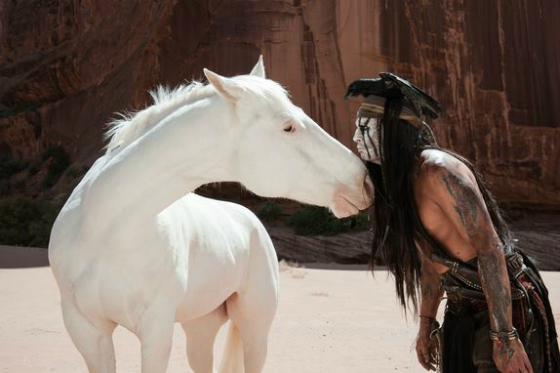 |
What Pirates of the Caribbean did for historical naval battle movies, The Lone Ranger does to the western. This will not likely come as a shock to anyone, but lest there was any doubt, yes, it adds fantasy elements and makes many of the major characters insane, while not being remotely accurate to real history. What may surprise you is that there is a legitimate in-story reason for this, one that also accounts for its mood-swings, tonal shifts, and occasional plot holes that the story quite deliberately calls your attention to. It also leads to a potentially darker interpretation of events than I’ve seen in a movie of this scale since Sucker Punch. But we’ll get to that.
Like the Pirates sequels, this is a movie that could stand to be shorter, yet in its best moments – like a climactic sequence in which all the main characters fall on and off (and on again) two speeding trains on occasionally parallel tracks heading for a bridge that’s no longer there – I never wanted it to end. That finale, which recalls Buster Keaton’s silent classic The General and is all scored to the familiar William Tell Overture (abused in many movies, but rightfully reclaimed for this property), is easily the best climactic action of the summer, so ingeniously timed and put together that it feels almost as expertly composed as the classic score.
Director Gore Verbinski is also fond of the sight gag, and there are many throughout the film. It begins in San Francisco in 1933, with a red balloon floating by, soon seen to have originated from a kid on a giant Ferris wheel, which is then revealed to be part of a larger carnival. Into this scene we follow a kid dressed as the Lone Ranger (though he looks almost as much like Woody from Toy Story) into an Old West exhibit where, among the stuffed bears and buffalo, he encounters a very aged Indian (Johnny Depp, in surprisingly effective old-age makeup) who claims to be the one and only Tonto of legend. Briefly mistaking the kid for the real deal, he launches into a yarn that becomes the rest of the movie, occasionally interrupted when the kid stops him to point out that some of the things he’s saying don’t make sense. As a framing device, it sets up the movie itself as something of a funhouse attraction, while also establishing an unreliable narrator. Yes, Tonto is more the hero now than in any previous telling – but that could be just because Tonto’s the one doing the telling.
The Ranger himself is a guy who struggles at first in his journey to be a hero, but he’s a genuine good guy. John Reid (Armie Hammer) is/was a city-trained lawyer and John Locke fan, returning to his Texas hometown via the new-fangled railroad. Here he encounters his brother (James Badge Dale) who has married John’s childhood sweetheart and upholds the law in his own way as a Texas ranger. John also runs afoul early on of outlaw Butch Cavendish (William Fichtner) – a hare-lipped, metal-toothed psychopath with a penchant for eating people’s hearts – and Tonto (Depp), a Comanche who has been arrested for unknown reasons.
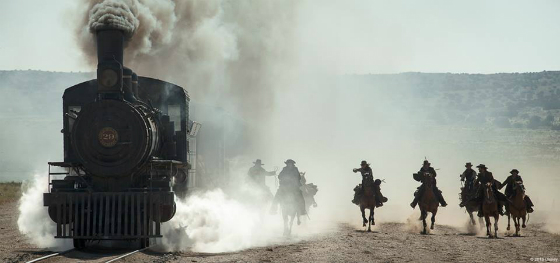 |
Well, the title of the movie kind of gives you a clue that any other rangers in the movie won’t be lasting long, so in short order, John’s brother and his fellow rangers are gunned down. John is injured but not killed, and reluctantly rescued by Tonto when a mystical white horse (who won’t be named Silver until the end of the movie) appears to select the unconscious attorney for spiritual service. Tonto believes it is his own duty to slay Cavendish because he’s an evil Wendigo spirit, while Reid has the motive of revenge, though he still refuses to kill or even fire a gun at first. It’s a minor distinction, really, since genuine bad guys in the Old West get the death penalty anyhow, but it’s a pleasant throwback to see a hero who primarily shoots bad guys in the hands (hugely impractical, that – but entertaining).
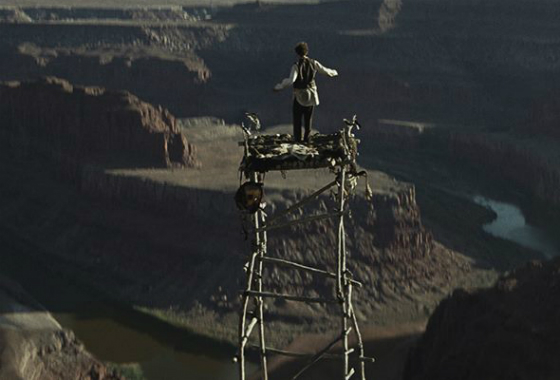 |
Naturally, there’s a larger plot surrounding Cavendish, one which involves provoking an all-out Indians versus Cavalry war, with a significant onscreen body count. Uniquely for a summer movie, this stuff is played without giving you a side to root for; rather, it’s presented as destructive, needless madness with no winners. So to those of you who complained that Man of Steel didn’t acknowledge the likely body count of its finale, here you go. It gets dark here, and even darker when Tonto’s past is revealed – he has a guilt trip similar to Simba’s in The Lion King, and part of his “mysticism” is in fact insanity stemming from that tragedy.
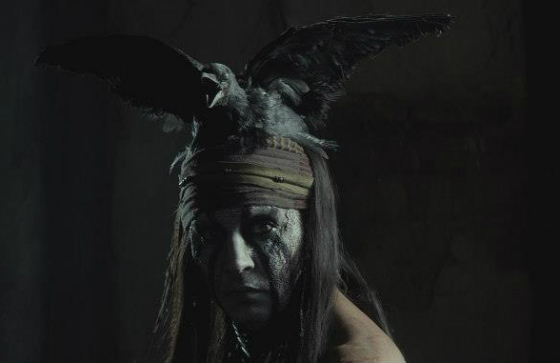 |
Which leads back to an alternate take on the movie, one that didn’t really hit me until the end of the movie, when it felt like a full-on sledgehammer. We’ve established that Tonto is half crazy with grief, and the movie has also established a running metaphor of pocket watches as symbolic of betrayal (notably including a broken watch which indicates a moment that Tonto cannot let go or move past). Time has indeed betrayed his people, to the point where this former warrior is now a sideshow attraction – what if the entire movie is in fact a fantasy memory that masks the genocide of his people that he cannot bring himself to process, leading him to create a fiction in which he was a legendary hero? And what if, amid the glorious heroics, bits of that dark reality occasionally seep in, only to be pushed away by a new moment of (arguably false) triumph? In that context, all the tonal shifts and bizarre moments of magic – at one point, Silver is seen standing in a tree wearing a hat – make total sense.
Plus there are cannibal bunnies with fangs. I am not kidding.
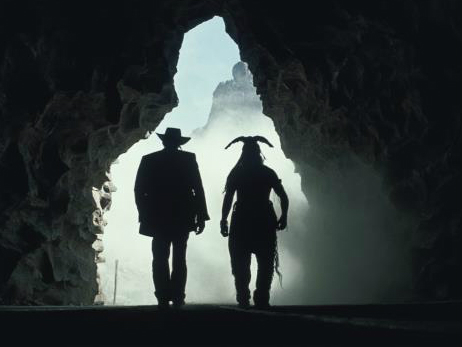 |
As in Life of Pi, Tonto ultimately tells the kid it’s up to him whether the story is true or not. But whether you read it as rollicking adventure or dark allegory, it’s an odd take on a classic property that may alienate purists but is a marvel to behold. Hammer establishes himself as a convincing lead, while Depp once again goes out on a limb in a way that pays off and legitimately makes sense.
I suspect many of the naysayers wanted a more conventional Western; or, perhaps, a summer action movie that doesn’t touch on genocide so much. I love what I think Verbinski has done…but I’m weird like that.
